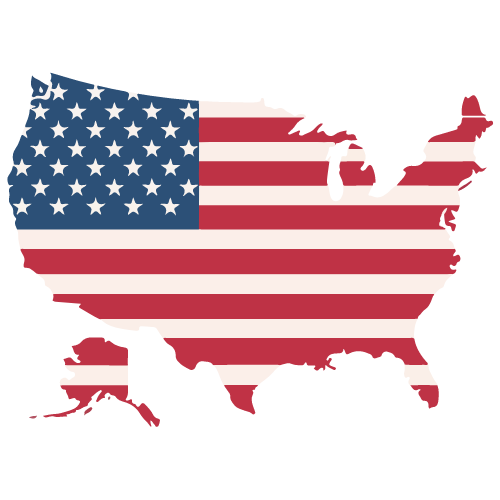Visa Interview
USA

Why Study in the USA?
The United States is a popular destination for international
students, offering a world-class education system and a
diverse, vibrant environment. Studying in the USA provides
access to prestigious universities, numerous research
opportunities, and an active campus life, all contributing to a
well-rounded academic and personal experience.
Types of Student Visas
F-1 Visa
For students enrolling in academic programs at
universities or colleges.
J-1 Visa
For participants in exchange programs.
M-1 Visa
For students enrolled in vocational or non-academic
programs.

Eligibility Criteria
General Requirements
Applicants must meet several criteria to qualify for a student visa:
Valid Passport: Ensure your passport is valid for at least six months beyond your intended stay.
SEVP-Approved School Acceptance: Receive acceptance from a Student and Exchange Visitor Program (SEVP) approved school.
English Proficiency: Provide proof of English language proficiency through tests such as TOEFL or IELTS.
Financial Resources: Demonstrate sufficient funds to cover tuition and living expenses.
Specific Visa Requirements
F-1 Visa: Must enroll in a full-time academic program.
J-1 Visa: Participation in an approved exchange program.
M-1 Visa: Enrollment in a vocational or non-academic program.
Application Process
Step-by-Step Guide

Choose a SEVP-Approved School: Research and apply to schools that are SEVP-approved.
Receive Form I-20 or DS-2019: Upon acceptance, receive the appropriate form (I-20 or DS-2019) from your school.
Pay the SEVIS Fee: Pay the SEVIS (Student and Exchange Visitor Information System) fee online.
Complete the DS-160 Form: Fill out the Online Nonimmigrant Visa Application (DS-160).
Schedule a Visa Interview: Book an appointment at the US embassy or consulate.
Prepare Documents: Gather all necessary documents, including your passport, SEVIS fee receipt, DS-160 confirmation, acceptance letter, and financial evidence.
Attend the Visa Interview: Attend the interview with all required documents.
Financial Requirements
To study in the USA, you must demonstrate sufficient funds to cover your tuition and living expenses.
This includes:
Demonstrating Financial Stability
Proof of Funds: Bank statements, financial aid awards, or sponsor letters showing you have enough funds.
Estimated Expenses: Include tuition fees, living expenses, health insurance, and other personal costs.
Scholarships and Financial Aid
University Scholarships: Many US institutions offer scholarships to international students.
External Scholarships: Various organizations and governments provide financial aid for studying abroad.
Post-Visa Approval

Pre-Departure Checklist
- Arrange Travel: Book your flight and plan your arrival.
- Secure Accommodation:Arrange housing either on-campus or off-campus.
- Prepare Necessary Items:Pack essential items and gather any required documents for travel.
Arrival in the USA
- Customs and Immigration: Be prepared for customs inspection and have all documents ready.
- School Registration: Complete any necessary registrations and orientations at your school.
Compliance with Visa Rules
- Attend Classes Regularly: Maintain full-time enrollment and good academic standing.
- Work Authorization:Do not work off-campus without proper authorization.
- Keep Documents Updated: Ensure your visa and passport are valid and updated.
Extension and Renewal
- Program Extension:If needed, apply for an extension of your program.
- Visa Renewal: Follow the procedures for renewing your visa if it expires before the completion of your studies.
Maintaining Your Visa Status

Visa Interview
Preparation Tips
Understand Your Program: Be clear about why you chose your course and institution.
Practice Common Questions: Prepare answers for questions about your academic background, study plans, and future goals.
Organize Documents: Ensure all required documents are organized and readily accessible.
Common Questions
Why did you choose this specific school and program?
How will you finance your education and living expenses?
What are your plans after graduation?


Working While Studying
On-Campus Employment
Eligibility: F-1 students can work on-campus up to 20 hours per week during academic terms and full-time during breaks.
Common Jobs: Positions such as library assistants, research assistants, or in campus facilities.
Off-Campus Employment
Optional Practical Training (OPT): Allows students to work in their field of study for up to 12 months after completing their degree.
Curricular Practical Training (CPT): Enables students to gain work experience directly related to their major during their studies.
FAQs
The process can take several months, so apply early.
Yes, you can bring dependents under certain conditions.
If your application is denied, you can appeal the decision or reapply with additional documentation.


